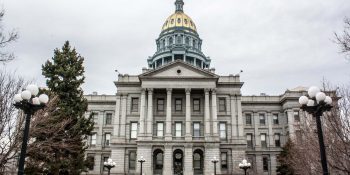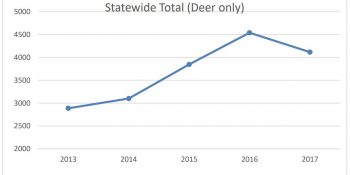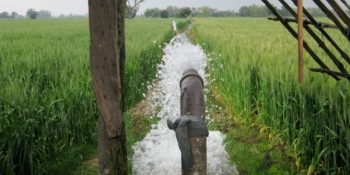Denver, Colorado – Colorado State University System will host its second annual Water in the West Symposium on Nov. 6 and 7, 2019, at Gaylord Rockies Resort & Convention Center, to convene diverse experts and thought leaders to highlight solutions and collaborate on one of the greatest global issues: water.
The event has sold out both years with approximately 400 diverse water stakeholders, ranging from recreation and environment to business and agriculture.
“Colorado State University is in the perfect position to act as a convener around the issue of water,” said former Secretary of U.S. Agriculture Tom Vilsack, an advisor to CSU on the National Western Center project in north Denver. “As we focus on solutions and problem-solving around water issues at this event, we want everyone at the table to be part of this critical conversation for an issue that impacts everyone, regardless of where they live.”
The Symposium is an initial offering of the CSU Water Building, one of three buildings that will comprise the future CSU Campus at the National Western Center. The new CSU Campus is expected to break ground in 2020 and open in 2022, and will also include an animal health building and a center focused on food and agriculture. Each of the CSU buildings will provide collaborative research and incubation spaces, and interactive and family-friendly educational opportunities focused largely on the themes of health, environment, energy, water, and food.
The 2019 Water in the West Symposium will feature nearly 30 speakers, including Walter Robb, founder of Stonewall Robb Advisors and former co-CEO of Whole Foods; Claudia Ringler, International Food Policy Research Institute; Winston Yu, International Water Management Institute; and Kate Greenberg, Colorado Commissioner of Agriculture. A full list of speakers and additional event information is available at nwc.colostate.edu/water-in-the-west-2019.
“CSU has long been an expert in water issues, and the CSU Campus at the National Western Center will place these conversations on an even larger stage,” said Dr. Tony Frank, chancellor of the CSU System. “The University has a responsibility to use its resources and position as a land-grant institution to take the lead in convening conversations and efforts around these important global issues.”
The Symposium, originally scheduled for March 13-14, was postponed due to a winter storm that cancelled flights of key Symposium speakers, and shut down schools, governments, and businesses across Colorado.
Colorado State University at the National Western Center
Colorado State University has made a long-term commitment to the future National Western Center and its surrounding communities in north Denver.
The CSU Campus at the National Western Center will focus on research and educational programming in the areas of food, water, sustainability, and human and animal health within its three buildings: the CSU Water Building, CSU Animal Health Complex, and CSU Center for Food and Agriculture. What’s inside the buildings will bring together the brightest minds, inspire the next generation, and address global challenges.
The University is currently working to engage with the community and to partner with local schools, nonprofits, and businesses to create impactful research, collaboration, and year-round programming to this unique project.
For additional information, visit nwc.colostate.edu.
SPREAD THE NEWS
COMMENT, Like, Follow & SHARE @I70Scout
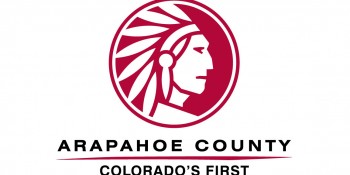

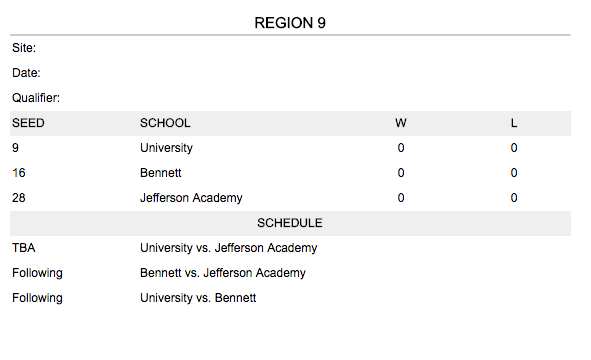



 Fort Morgan, CO — Morgan Community College (MCC) invites the public to the Fort Morgan campus, located at 920 Barlow Road, for the groundbreaking of Poplar Hall Agriculture Center for Innovation on November 5, 2019 at 11 a.m. The Agriculture Center for Innovation at Poplar Hall will provide needed space for MCC agriculture programs, including Agriculture and Business Management (ABM), Precision Agriculture, and Unmanned Aircraft Systems. The new facility will also provide space to grow the college’s agriculture offerings, including the Industrial Controls Technician Certificate program under development. The 4,905 square foot facility will feature a classroom, computer laboratory, shop, and office space.
Fort Morgan, CO — Morgan Community College (MCC) invites the public to the Fort Morgan campus, located at 920 Barlow Road, for the groundbreaking of Poplar Hall Agriculture Center for Innovation on November 5, 2019 at 11 a.m. The Agriculture Center for Innovation at Poplar Hall will provide needed space for MCC agriculture programs, including Agriculture and Business Management (ABM), Precision Agriculture, and Unmanned Aircraft Systems. The new facility will also provide space to grow the college’s agriculture offerings, including the Industrial Controls Technician Certificate program under development. The 4,905 square foot facility will feature a classroom, computer laboratory, shop, and office space.